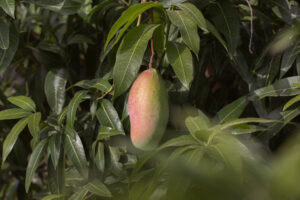

Several products are commonly used for ripening fruits:
1. Ethylene Gas: Ethylene gas is the most common method used for artificial fruit ripening. Fruits naturally produce ethylene gas as they ripen. By exposing unripe fruits to controlled levels of ethylene gas, it accelerates the ripening process.
2. Ethylene-Producing Sachets or Tablets:These contain a compound called calcium carbide, which releases ethylene gas when it reacts with moisture. These sachets or tablets can be placed in fruit storage containers to induce ripening.
3. Ethephon:Ethephon is a plant growth regulator that releases ethylene upon metabolism within plant tissues. It's used to promote fruit ripening, particularly in climacteric fruits like bananas, tomatoes, and mangoes.
4. Catalytic Generators: These are devices that produce ethylene gas from a liquid solution of ethanol or an ethylene precursor. They are commonly used in large-scale fruit storage facilities to regulate ripening.
5. Ripening Rooms: Specialized ripening rooms control temperature, humidity, and ethylene levels to induce uniform ripening of fruits. These rooms are often used in commercial settings for large quantities of fruits.
6. Fruit Ripening Spray: Some commercially available sprays claim to hasten the ripening process by providing ethylene or ethylene-releasing compounds directly to the fruit's surface.
These methods are carefully regulated to ensure the desired level of ripening without causing damage to the fruit or compromising its quality.

Snow Star Ripening: Where nature’s chill meets the warmth of ripe flavors.